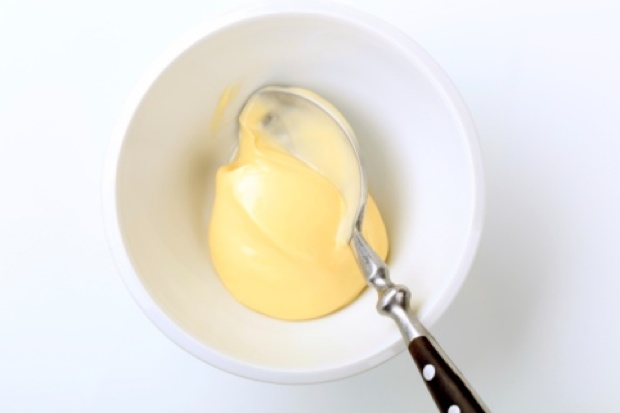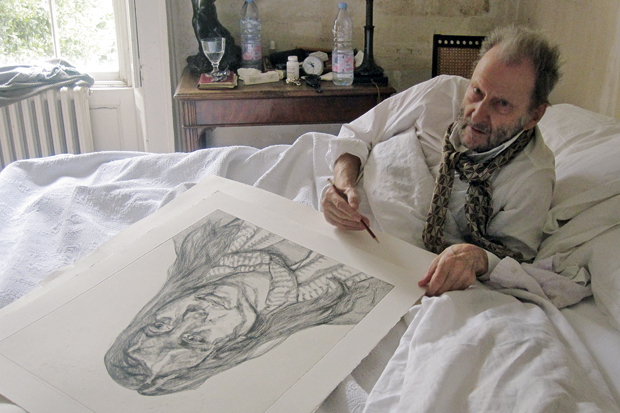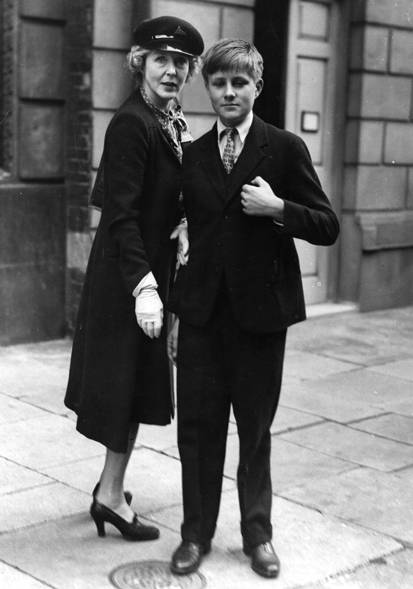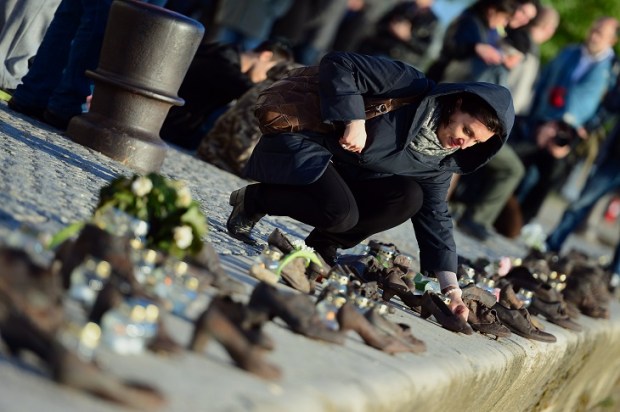The early 1990s in Russia were hungry years. At the time, I was a student, too idle to barter and hustle for food, and the collapse of the planned economy had left the shops empty. Instead, we staved off hunger- pangs with cigarettes, and if edible matter came our way, we fell upon it like locusts. More often than not, it took the form of the Soviet staple, Salat Olivier — Russian salad, plastered so thickly with mayonnaise that the ingredients were unidentifiable. (I notice that even the act of typing these words makes my mouth water; a complicated rush of nostalgia, anxiety and greed.)
Like most aspects of late Soviet Russia, the Salat Olivier had a dual identity. In canteens it had a public life, monotonous and shot through with suspicion — it seemed probable that the mayo disguised unpleasant secrets. In private houses it was another thing entirely, crunchy and delicious, a triumph of ingenuity over poor ingredients. It was as if every moment of intimacy, every salad and bowl of borshcht eaten at home with friends were seasoned with a tiny rebellion by the individual against the state.
These were the flavours of Anya von Bremzen’s childhood under Brezhnev. No wonder, when she and her mother finally emigrated to Philadelphia in 1974, American food was a disappointment. Even the most exquisite food could not have competed with the pure diced emotion of a Salat Olivier.
Now an accomplished food writer and an American citizen for almost 40 years, von Bremzen has conjured up the Proustian aromas of her Soviet life for her enjoyable ‘foodoir’. With her mother Larisa, she has cooked her way through a fascinating family history, each dish rivalling in dramatic excess the age it represents. For a starter, she offers a salmon kulebiaka of imperial decadence (layered with blini, dried sturgeon spine, sour cream, rice, wild mushrooms and calves’ brains fried in butter) to give a taste of the excesses of Tsarist food culture, destroyed ‘in just a bony fistful of years’ after the Revolution.
Then a dish of Gefilte fish, Odessa-style (take a whole pike, peel off the skin like a stocking, mash the fish, matzo and other seasonings together and stuff back into the skin and head to be poached) in memory of her Odessan Jewish relations, the great- uncle slaughtered as a baby in front of his parents in the pogroms of 1905. To convey the nauseating blend of Stalinist optimism and raw terror, von Bremzen rescucitates the illustrations of Anastas Mikoyan’s Book of Tasty and Healthy Food: fish in aspic, carved tomato rosettes, crab salad with a frill of piped mayonnaise. For wartime, no recipe is suggested. Instead, a ration card issued during the Siege of Leningrad is reprinted: 125 grammes of bread per person, per day.
A jaunty, occasionally over-colloquial style carries us through this epic feast, garnished with the stories of, among others, a communist great-grandmother who agitated for the liberation of women from the veil in Central Asia; the only letter to arrive from her grandfather during the war: ‘Liza, teach the children to throw grenades’; and an alcoholic uncle’s tipples of brake fluid, surgical glue and wood varnish.
As her single mother struggles to provide for the pair of them, von Bremzen charts her own early development into a junior ‘Homo Sovieticus’, a schoolgirl black marketeer with a line in Juicy Fruit gum. A true product of late socialism, she notes that both the idealism of her Bolshevik grandparents and the passion for sincerity of her mother’s post-Stalin generation were impossible for children of the cynical Brezhnev years. ‘I neither accepted nor rejected the socialist state,’ she says. ‘Instead, I simply played the angles.’
Mastering the Art of Soviet Cooking is perceptive and funny on the subtleties of life under Soviet rule and in exile, and what’s more, it includes a nice recipe for blini. Good work, comrade!
Got something to add? Join the discussion and comment below.
Get 10 issues for just $10
Subscribe to The Spectator Australia today for the next 10 magazine issues, plus full online access, for just $10.
Charlotte Hobson is the author of Black Earth City: A Year in the Heart of Russia.
You might disagree with half of it, but you’ll enjoy reading all of it. Try your first month for free, then just $2 a week for the remainder of your first year.














Comments
Don't miss out
Join the conversation with other Spectator Australia readers. Subscribe to leave a comment.
SUBSCRIBEAlready a subscriber? Log in